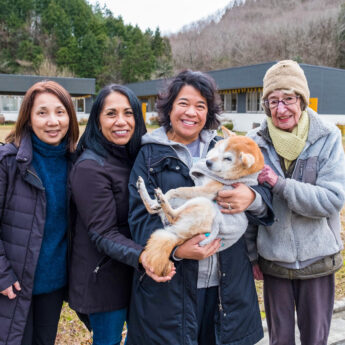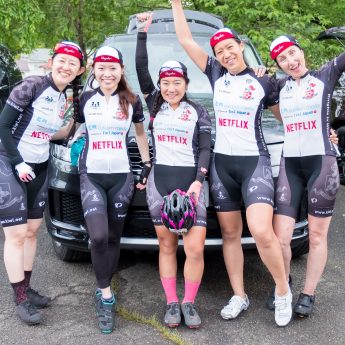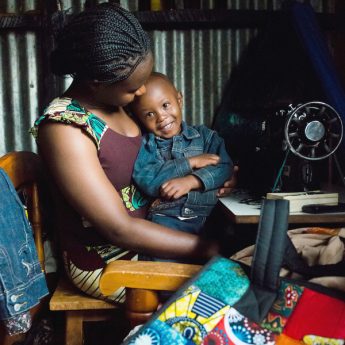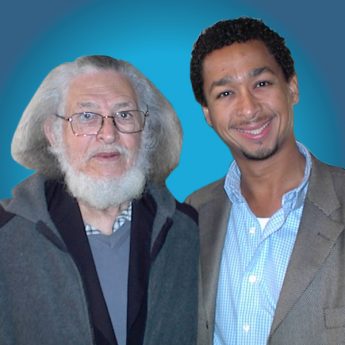TELL celebrates 40 years, appoints new leader
• The non-profit was rebranded this year
• Total of 6,419 calls fielded in 2012
• Biggest fundraising event in November
Since its inception, TELL has come a long way. As well as celebrating its 40th anniversary this year, the organisation has rebranded itself from its original moniker Tokyo English Life Line and named Ian de Stains OBE as its new executive director.
De Stains brings a wealth of experience to the role, in part a legacy of his time as executive director of the British Chamber of Commerce for nearly a quarter of a century up to 2011.
“I have been working for TELL for about 20 years on a volunteer basis, serving on the board and helping with fundraising, but there was a lot of discussion about a year ago concerning the need to bring in an executive director”, de Stains told BCCJ ACUMEN.
That role would involve acting as a spokesman to encourage further fundraising efforts and backing TELL’s ambitious “Forty for the Future” project, which aims to raise ¥40mn in the next year to support the organisation’s growing activities.
Much of TELL’s funding comes from grants and corporate donations, but three events staged each year also go towards helping the non-profit continue its good work.
More than 700 people took part in last year’s 13th annual Charity Walk & Runathon, and this year the Austrian Ballet Company staged the 9th Annual Ballet for Children.
De Stains and his colleagues are now preparing for arguably the most important money-raising event of the year, the 18th Annual Connoisseurs’ Auction, which will be staged at the Embassy of the Republic of Angola on 22 November.
Widely considered one of Tokyo’s premier evenings for wine lovers, more than 300 guests are expected to attend the event to bid on 50 lots of top-quality wine, a selection of extravagant getaways and other luxury goods and services.
“This really is one of the most important elements of our fundraising activities and we are always well supported by the community, including donors to the auction, the people who come along and bid and the diplomatic community”, said de Stains.
Forty years ago, TELL was set up with a staff of just three people. Today, the organisation has eight employees and can call on 20 therapists and countless volunteers, including university students who can earn credits for their efforts.
De Stains’ own involvement began when a foreign couple living nearby lost their baby to sudden infant death syndrome. He realised he did not know how to handle the situation in Japan, and was moved by the emotional effect the tragedy had on him.
“TELL’s support made me think that I should give something back and it has gone from there”, he said. “This is the sort of organisation that, once you get involved, it’s very hard not to stay involved”.
There is clearly a need for the support that TELL provides. Counsellors took 6,419 calls in 2012, of which 469 callers were found to be at risk of suicide.
People calling the lifeline, as well as those attending face-to-face counselling sessions, have presented mental health issues across the spectrum, according to de Stains.
Issues ranged from relationship troubles to anxiety, loneliness, alcohol abuse, trauma, eating disorders, learning problems and grief.
“Sometimes we get calls from people wanting to know about an English-speaking dentist, for example, and then we can direct them to the very useful ‘Wiki-TELL’ directory on the website. But other callers are experiencing depression or anxiety, and they rely on TELL to give them hope and get them out of bed in the morning”, he said.
The number of calls to the hotline also shot up in the aftermath of the March 2011 natural disasters in Tohoku.
The organisation decided to rebrand itself from Tokyo English Life Line this year, as it aims to reach out to more people across the country.
It also has ambitions to provide its telephone counselling services 24 hours a day, but needs more volunteers—all of whom require training before they can cope with a cry for help.
De Stains is enjoying his new role, but admits the hardest thing for him is appealing to donors to provide more financial assistance.
“My hardest task is making the case for companies to give us money”, he said. “It’s certainly not a case of them not wanting to, but it’s not the best time economically right now.
“But I believe so much in everything TELL does that I recognise we need donations to build on that”.





